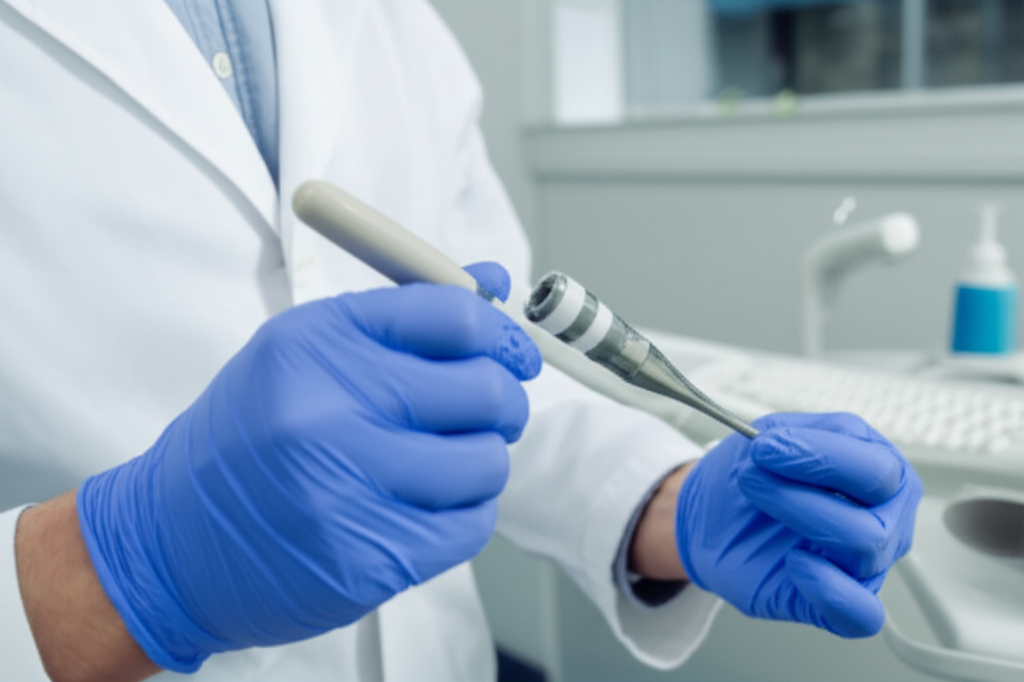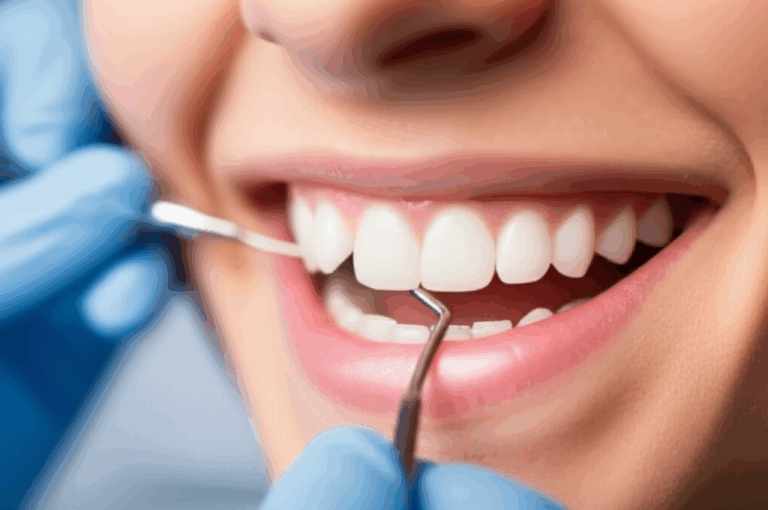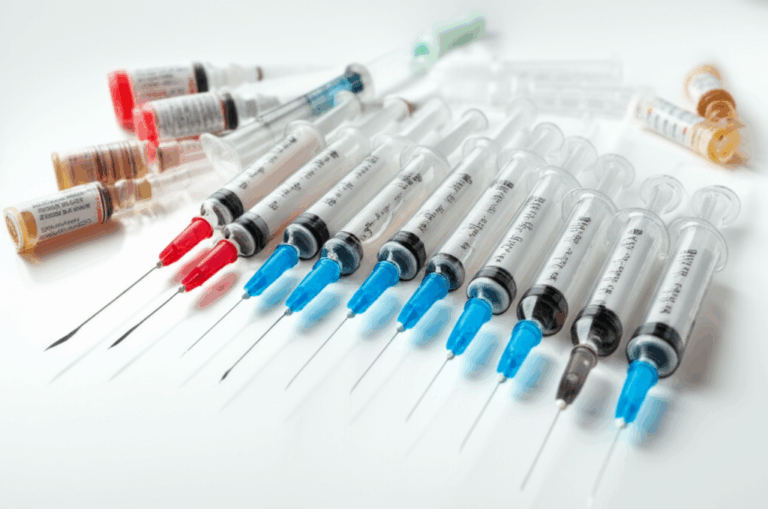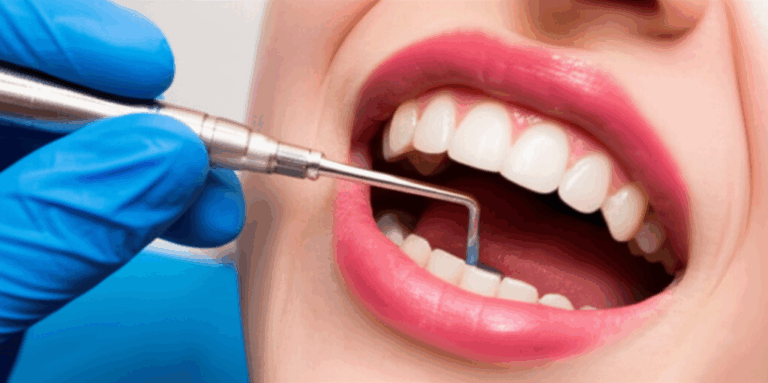
Can a Dentist Be a Medical Director? Understanding the Roles, Requirements, and Limitations
Have you ever wondered if your dentist could be the boss of a whole medical clinic, not just the dental part? Maybe you’re a dental worker who wants more responsibility. Or maybe you’re just curious about who runs the clinic where you get care. Either way, you’re not alone—this is a common and important question. So, can a dentist be a medical director? The answer is yes—but only in certain places and under specific rules.
Let’s clear up any confusion. This easy-to-read guide will show you what a medical director does, the rules dentists need to follow, and when a dentist can or cannot take on this leadership job. By knowing these differences, you’ll understand more about dental and medical care, whether you’re a patient or a worker.
In This Article
- The Short Answer: Can a Dentist Be a Medical Director?
- What Is a Medical Director? Responsibilities Explained
- The Legal and Regulatory Landscape
- Situations Where a Dentist Can Serve as Medical Director
- Situations Where a Dentist Usually Can’t Be Medical Director
- What Does It Take? Qualifications and Skills Needed
- Dentists vs. Physicians in Leadership Roles
- Hurdles and Considerations for Aspiring Dental Leaders
- Key Takeaways: Building Dental Leadership for the Future
The Short Answer: Can a Dentist Be a Medical Director?
Let’s get straight to the main question. Yes, a dentist (DDS or DMD) can sometimes be a medical director. But there are rules. The most important thing to know? A dentist’s job as a medical director is limited to basic dental work and certain types of clinics.
Why is this so tricky? There are lots of rules and ideas about who should be in charge of medical teams. Most people think “medical director” means a regular doctor (MD or DO). In many places, those are the only people who can be a true “medical director” in places like hospitals or doctor’s offices. But in dental clinics, a dentist can be the boss—sort of like a “chief dental officer.”
What will you learn in this guide?
- What a medical director really does
- The difference between dental and medical leadership jobs
- Where and when a dentist can be called a medical director
- Problems and tips for dentists who want to be leaders
Let’s see how these questions work in real life and what they mean for you.
What Is a Medical Director? Responsibilities Explained
You’ve probably seen “medical director” on a door or a brochure. But what does it really mean?
Simply put, a medical director is the leader, in charge of the clinical and office side of a health place or department. Think of them as the team captain. Their big jobs usually are:
- Clinical Oversight: Making sure care is safe and based on good science. They look at rules, check how patients do, and set up how things get done.
- Quality Assurance: Watching and trying to improve things like patient happiness or treatment success.
- Regulatory Compliance: Making sure the clinic follows all the rules (like HIPAA, OSHA, or state requirements).
- Provider Supervision: Watching over other dentists, hygienists, or assistants, and sometimes giving feedback on their work.
- Emergency Preparedness: Creating plans for what to do in an emergency.
- Administrative Leadership: Budgets, planning, staff training, and helping the office run smoothly.
What’s the difference between clinical and administrative jobs? Clinical jobs are about actually treating patients. Administrative jobs mean the business and paperwork side.
The bottom line? A medical director is the main person responsible for making sure care is good and safe. But what they can do depends on some important legal rules.
The Legal and Regulatory Landscape
This is where things start to get complicated, but it’s also why the answer isn’t just yes or no.
1. Scope of Practice
Every healthcare pro—including dentists—has a “scope of practice.” Think of it as a fence around what they’re allowed to do. Dentists are trained and licensed to look after teeth, gums, jaws, and things in the mouth. They can’t treat the rest of the body (unless they have extra training or another license).
2. Licensing Boards: Medical vs. Dental
Every state has a medical board (in charge of doctors) and a dental board (in charge of dentists). These boards give licenses, enforce rules, and handle complaints. If someone is called a “medical director,” the board in charge depends on their background and what their workplace does.
3. Facility Type
Rules for medical directors depend on where they work. For example:
- Dental Clinic (private, group, or FQHC dental arm): Follow dental board rules. A dentist can lead here.
- Hospital, primary care, or urgent care: Follow medical board rules. An MD or DO is almost always needed as the medical director.
4. Delegated Authority
Some places need a boss to oversee nurse practitioners (NPs), physician assistants (PAs), or doctors. A dentist can’t usually be the boss of these non-dental workers. Dentists can only be in charge in the dental world.
Bottom line: The main answer depends on the type of place, the kind of care given, and who might be supervised.
Situations Where a Dentist Can Serve as Medical Director
You might be shocked by how many leadership jobs dentists can have outside the dental chair. Here are the most common places:
1. Dental-Specific Facilities
- Large Group Practices: A dentist can be the leader in group or corporate dental offices.
- FQHC Dental Clinics: Dental branches of community health centers need dentists to lead them.
- Dental Specialty Centers: Oral surgery, orthodontics, or endodontics all need experienced dental bosses.
- Academic Dental Settings: Dental schools need director-level teachers to lead student clinics.
2. Specialized Medical Spa Settings
- Medical Spas with Dental Focus: In some states, dentists can do facial injections (like Botox) and simple cosmetic procedures around the mouth. Here, a dentist can sometimes be the clinical director. But this depends on state law.
3. Public Health and Research
- Public Health Departments: Dentists can run programs for oral health and disease prevention.
- Research Institutions: Dentists can be in charge of clinical trials or studies about oral health.
Relevant Example
Let’s say Dr. Smith, a DDS, is the dental director at a big practice. She:
- Sets clinical rules
- Approves plans to stop infection
- Checks cases for quality
- Teaches other staff
Everyone is giving dental care. Dr. Smith’s skills fit exactly.
Want to learn about technology that helps leaders? Some groups work with advanced digital dental labs to help make care smoother and help keep quality high.
Situations Where a Dentist Usually Can’t Be Medical Director
There are still limits to dental leadership—for both safety and legal reasons.
1. Hospitals or General Medical Places
Think of a hospital emergency room or a clinic with many kinds of doctors. It doesn’t work to have a dentist in charge—both because of their training, and because the medical board requires a doctor for this job.
2. Medical Spa Settings with Broader Procedures
While dentists might do dental-related spa work, they can’t boss over things outside the mouth or face, like skin work on the body. That’s for doctors.
3. Supervision of Non-Dental Medical Professionals
Dentists aren’t allowed to control physician assistants (PAs), nurse practitioners (NPs), or doctors.
4. Facilities Doing Mainly Non-Dental Services
Places like psychiatry clinics, general surgery, or family medicine aren’t the dentist’s world.
Quick Analogy
It’s like pilot jobs: a helicopter pilot can be boss of helicopter pilots, not of a team flying jets. The jobs don’t line up.
What Does It Take? Qualifications and Skills Needed
You may think dental directors do everything. But the best ones have great dental skills plus leadership and some extra training.
1. Education & Licensure
- A dental degree (DDS or DMD)
- An active, good license for the state
2. Clinical Experience
- Several years working with different dental patients
- Experience as a lead dentist, department head, or residency director helps
3. Extra Training (Helpful, Not Required)
- Public Health (MPH): Good for leading community projects
- Health Admin or Business (MHA, MBA): For running the business side
- Advanced Dental Certificates
4. Core Office Skills
- Managing people and growing staff
- Knowing rules (OSHA, HIPAA, prescription rules)
- Making clinic policies and keeping risks low
5. Communication and Leadership
- Can build teams and solve problems
- Stays calm during emergencies or inspections
Did you know? Many dental directors work closely with dental ceramics labs and other experts to give top results.
Dentists vs. Physicians in Leadership Roles
So, why can’t dentists just run every clinic?
Scope of Authority
Doctors (MDs and DOs) have much wider training—they know about hearts, emergencies, and the whole body. They can run all kinds of medical care. Dentists focus on the mouth and jaw.
Regulatory Oversight
Medical and dental boards have separate rules. There are strict laws to protect patients and make sure the boss is trained for the job.
Public Perception
Most people think a “medical director” knows about health for the whole body. Clinics and hospitals respect that.
Real-World Distinctions
- Dentist as Director: Good for dental clinics, dental spas (if the state allows), or oral-health public programs.
- Doctor as Director: Needed for hospitals, clinics with many specialists, urgent care (unless only dental), and non-dental services.
Hurdles and Considerations for Aspiring Dental Leaders
Even when allowed, being a director brings some struggles:
1. Handling State and Federal Rules
No two states are the same. Some let dentists do more, others only let doctors lead. Always check with your state dental and medical boards.
2. Changing Minds
Staff and patients often expect a doctor in the top spot. Good leadership and clear talk helps a lot.
3. Keep Learning
Great leaders stay up to date with new gadgets, new rules, and new ways to keep risks low.
4. Setting Clear Rules
As clinics change, directors must always know—and say—what they and their teams are allowed to do.
Tip: Dental directors often work with up-to-date zirconia labs to help their clinics offer the latest treatments.
Key Takeaways: Building Dental Leadership for the Future
Now it’s clear—dentists have a real place as leaders in healthcare, especially as we all learn how important oral health is overall. As healthcare systems work together more, good dental leaders are needed!
Remember:
- Dentists can be medical directors in dental settings and dental programs.
- They can’t manage non-dental medical workers or services.
- They usually need a DDS/DMD, an active license, leadership skills, and maybe extra admin training.
- State and clinic rules are different everywhere. Ask your boards before taking new jobs or titles.
- Dental leadership is about making care safer and better for patients!
Your Healthy Takeaway (Empowering Conclusion)
Here’s what matters:
- Dentists can be “medical directors” in dental clinics, group practices, and some public health jobs, but must stick to their side of things.
- If you’re a patient, knowing who is in charge helps you feel safe and make smart choices.
- If you’re a dentist wanting to lead, think about more education, get a mentor, and learn your state’s rules.
- Dental and medical care are coming together more than ever—strong dental leaders are needed.
Your Next Steps:
- For dental workers: Check your state’s rules. Think about learning more in admin or public health.
- For patients: Ask who leads your clinic and how it affects your care.
- For everyone: Oral and general health are linked—support leaders who get this big idea.
Want to know more about dental care or find a trusted expert? Read up on china dental lab for new ideas in dental care.
Frequently Asked Questions
Can a dentist be a medical director in a hospital?
In almost all cases, no. Hospitals usually need a medical doctor (MD or DO) as director.
Is the title “medical director” the same as “dental director”?
No, but in some dental places, the boss may be called “medical director.” The job is still all dental.
Who watches over a dental clinic’s medical director?
Usually the state’s dental board. If more kinds of care are given, other boards may get involved.
Are there other certificates dental directors should get?
Yes. An MPH, MBA, or certificates in things like sedation or public health can help.
The Takeaway?
If you care about dental leadership or how your clinic works, you’re thinking ahead. Knowing who does what helps you always get the right care from the right person.
A healthy smile starts with strong leadership—whether you’re in the chair or running the clinic.
References:
- American Dental Association (ADA): “Scope of Practice & State Regulations”
- Centers for Medicare & Medicaid Services (CMS): Facility Guidelines
- State Dental and Medical Board official resources
This guide is for learning only. For legal or clinical help, contact your state licensing boards or a health lawyer.








